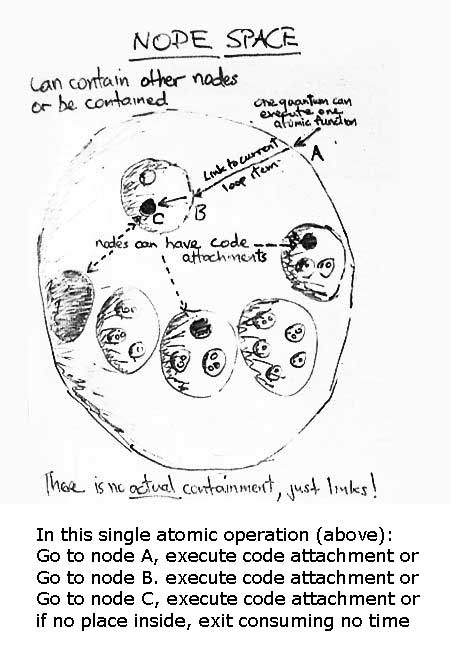Difference between revisions of "Node space"
From Organic Design wiki
(restructure) |
m |
||
| Line 8: | Line 8: | ||
</table> | </table> | ||
| − | |||
| − | |||
| − | |||
| − | |||
*[[nodeSpace.c]] is the current implementation of node space running in [[peerd.c]] based [[peer]]s | *[[nodeSpace.c]] is the current implementation of node space running in [[peerd.c]] based [[peer]]s | ||
*[[nodal-wikid.pl]] extends PERL's native hash-table to make a Nodal Space (no longer current). | *[[nodal-wikid.pl]] extends PERL's native hash-table to make a Nodal Space (no longer current). | ||
*[[peer-nodal.as]] implements the functional way since ECMA can't use references as array-keys (no longer current). | *[[peer-nodal.as]] implements the functional way since ECMA can't use references as array-keys (no longer current). | ||
Revision as of 23:02, 4 November 2006
Together all the nodes in the local runtime environment form a node space data structure which is a collection of nodes to which the nodal reduction function is continuously applied. Each executing nodal reduction algorithm has a local single node space and is called a peer.
The peers implement the storage and distribution nodal organisation to form the global nodal network. Storage and distribution uses a global identity to refer to non-local nodes, but at runtime nodes are referred to directly by their memory references.
- nodeSpace.c is the current implementation of node space running in peerd.c based peers
- nodal-wikid.pl extends PERL's native hash-table to make a Nodal Space (no longer current).
- peer-nodal.as implements the functional way since ECMA can't use references as array-keys (no longer current).








